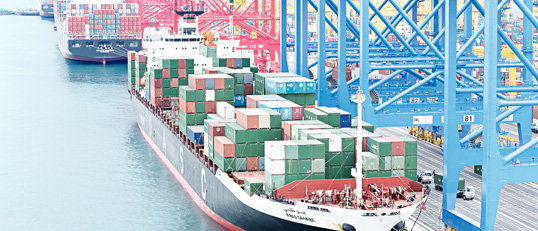(includes GRI indicators EC6 and HR2)
From raw materials to subcontractors, suppliers are a major part of ABB’s value chain. ABB currently has tens of thousands of active suppliers who represent an extension of our own enterprise. This also makes them an important factor in our sustainability performance.
Supplier performance is increasingly important as we extend our global footprint into emerging markets, but this must go hand-in-hand with our commitment that these business partners work sustainably and to our standards.
ABB has applied sustainability management principles to our suppliers for some years now. The supplier qualification process includes consideration of environmental, health and safety, social and human rights policies, performance and improvement programs. Suppliers are required to identify the environmental aspects and the health and safety risks in the scope of their supply to ABB and on-site audits have been conducted by ABB personnel and by the suppliers themselves in a self-assessment process.
More than 50 percent of approximately 1,500 key suppliers are externally certified to ISO 14001 for their environmental performance and a further 11 percent have implemented “self-declared” environmental management systems. Additionally, more than 1,000 documented environmental audits of suppliers were performed during 2010.
ABB is now reinforcing this process with a Supplier Sustainability Development Program, with the goal to develop suppliers into strategic business partners who share our commitment to sustainability. The program is based on monitoring and auditing suppliers, along with training suppliers and ABB personnel, and is supported by a dedicated sustainability expert within Supply Chain Management. A diverse reference team from different functions, including Quality and Operational Excellence, Sustainability Affairs, Legal and Compliance and representatives from our businesses, helps to ensure that the program meets our sustainability standards and reflects ABB’s business needs.
The program started late in 2009 and continued in 2010 with a series of pilot sustainability audits of ABB suppliers to road-test new, comprehensive Group-wide guidelines for auditors. The pilot audits were conducted by a third-party company and focused on suppliers in higher risk locations, producing commodities using hazardous processes, such as castings and forgings.
These pilot audits revealed a number of situations where ABB’s standards were not met. They included excessive overtime, poor waste disposal practices, or a lack of appropriate protective equipment for workers. However, the majority of these suppliers were willing to either make immediate changes or develop corrective action plans in an acceptable time-frame.
The audit program continues to focus on those countries with a higher generic risk of compliance issues, and on suppliers undertaking hazardous processes. To further assist ABB in building our sustainability auditing expertise, third parties will continue to be involved in the audits for the coming years. To support improvement actions, ABB is currently developing training materials to instruct both internal personnel and suppliers.
The recently-released ABB Supplier Code of Conduct (SCC), which defines minimum standards for any company wishing to sell to ABB, underpins the development program. The code covers supplier performance in fair and legal labor conditions, occupational health and safety, environmental responsibility and business ethics. The SCC also requires suppliers to be responsible for the sustainability performance of the sub-suppliers they hire to provide direct or indirect goods or services to ABB. The SCC has been sent to ABB’s top 1,000 suppliers and will, over time, be included in all global agreements.
We still have much work to do in building capacity both within our own organization and within our supply base. However, we have recognized the importance and value of this issue to the company’s success, and are working to improve performance.
